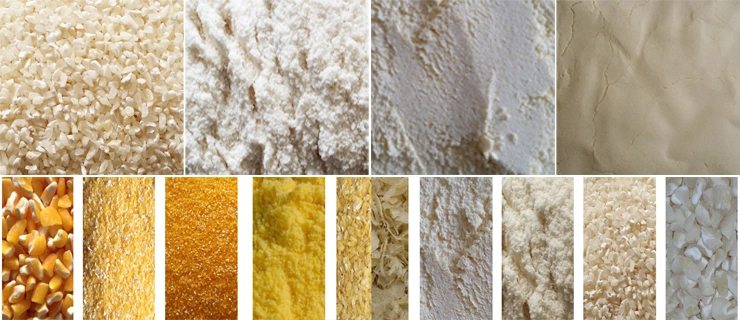-
+86-371-86159555
In the heart of agricultural economies, the maize milling machine stands as a linchpin, facilitating the transformation of maize from a raw commodity to a valuable, marketable product. Understanding the nuances of maize milling machine prices is not just a matter of financial consideration; it's a key to unlocking opportunities and ensuring sustainable growth.


Maize is the lifeblood of many regions, serving as a primary source of food, feed, and raw material for various industries. The maize milling machine is the instrument that breathes life into this resource, converting it into finely ground flour or other processed forms that are in high demand. It enables farmers to add value to their harvest, businesses to thrive in the food and feed sectors, and ultimately, contributes to the overall economic vitality of the community.
1. Technology and Innovation
- The level of technological sophistication embedded in a maize milling machine has a profound impact on its price. Machines equipped with state-of-the-art features such as advanced grinding mechanisms that ensure uniform particle size, automated control systems for precise operation, and energy-efficient motors that reduce operational costs in the long run command a higher price. For instance, a maize milling machine with a digital control panel that allows operators to fine-tune the milling process for different maize varieties and end-product requirements is more expensive than a basic model. However, this investment in technology pays off in terms of improved product quality, increased production efficiency, and reduced waste.
2. Capacity and Scale
- The size and capacity of the maize milling machine are crucial determinants of its price. Small-scale machines designed for individual farmers or small-scale operations typically have a lower price range, starting from around $500 to $5.000. These machines are compact, easy to operate, and can handle relatively small quantities of maize, suitable for meeting the immediate needs of a small farming household or a local village market. On the other hand, medium to large-scale industrial maize milling machines, capable of processing tons of maize per day, have a much higher price tag, ranging from $10.000 to $50.000 or more. These machines are designed for commercial operations, such as large flour mills or industrial food processing plants, and require a significant initial investment. However, they offer high production capacity, consistent quality, and the ability to meet the demands of a large market. (Find more machines with different capacity and price: Varies maize processing machines)
3. Brand and Reputation
- Established and reputable brands in the maize milling machine market often price their products higher due to the trust and quality assurance they bring. Brands that have a history of manufacturing reliable, durable machines with good after-sales service and support command a premium. Customers are willing to pay more for a brand that they can rely on to provide consistent performance and timely technical assistance. For example, a well-known brand with a global presence and a track record of innovation in maize milling technology may charge 10% - 20% more than a relatively unknown brand. However, the added value comes in the form of better quality components, more accurate engineering, and a higher level of customer satisfaction.
4. Quality of Materials and Construction
- The materials used in the construction of the maize milling machine play a significant role in its price and durability. Machines made with high-quality stainless steel for the grinding chambers, robust alloy frames, and precision-engineered parts are more expensive but offer better resistance to wear and tear, corrosion, and mechanical stress. These machines have a longer lifespan and require less frequent maintenance, saving on repair costs and downtime in the long run. In contrast, machines constructed with lower-quality materials may have a lower initial price but are more likely to experience problems such as part failures, reduced performance over time, and increased maintenance requirements.
5. After-Sales Service and Support
- Comprehensive after-sales service, including installation, training, warranty, and availability of spare parts, is an important factor that influences the overall price of a maize milling machine. Manufacturers and suppliers that offer reliable after-sales support ensure that customers can operate the machine smoothly and efficiently. This includes providing technical assistance in case of any malfunctions or issues, as well as ensuring the availability of genuine spare parts at a reasonable cost. The cost of providing such services is factored into the price of the machine. For example, a supplier that offers a one-year warranty, free installation, and traininice compared to a supplier that provides only the basic machine with no additional services. However, the peace of mind and continued operational efficiency that come with good after-sales support make it a valuable investment.
When considering the price of a maize milling machine, it's essential to look beyond the initial cost and evaluate the long-term value it brings. A higher-priced machine with advanced features, better quality, and reliable after-sales service may initially seem like a significant investment, but it can lead to increased productivity, reduced operational costs, and a more consistent and high-quality end product. This, in turn, can result in higher profits, better market competitiveness, and a more sustainable business model. On the other hand, opting for a cheaper machine may save money upfront but could potentially lead to higher maintenance costs, lower production efficiency, and a shorter lifespan, ultimately affecting the overall profitability and success of the operation.
In conclusion, the price of a maize milling machine is a complex interplay of various factors. By understanding these factors and carefully evaluating the price-value relationship, farmers, entrepreneurs, and investors can make informed decisions that not only meet their immediate budget constraints but also set the stage for long-term success in the maize milling and processing business. Whether it's a small-scale operation looking to enhance local food production or a large industrial enterprise aiming to dominate the market, finding the right maize milling machine at the right price is a crucial step towards achieving economic and agricultural prosperity.
+86-371-86159555
86635803
No. 57 Science Avenue
Zhengzhou, Henan, China
7*24 hours
Human services